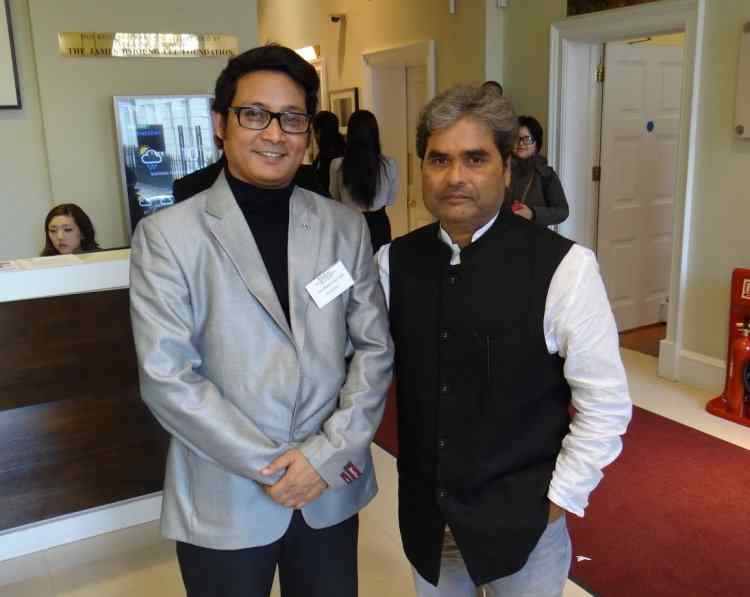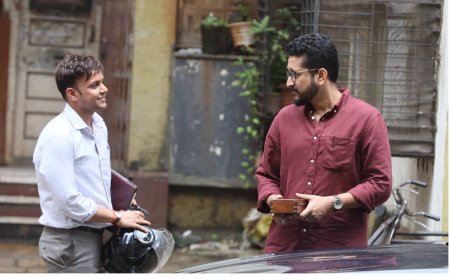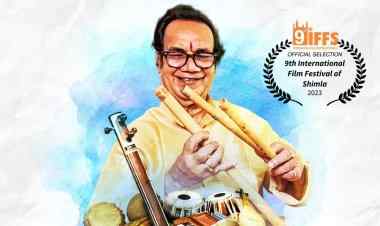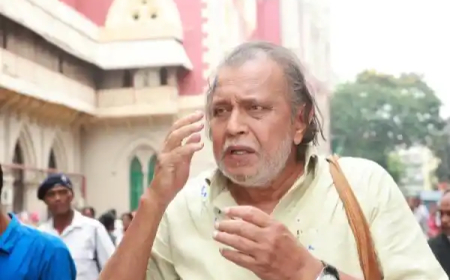Parthajit Baruah writes on Vishal Bhardwaj’s Shakespearean Adaptation: Reconstruction of Female
Parthajit Baruah writes on Vishal Bhardwaj’s Shakespearean Adaptation

The representations of Shakespeare’s women and the interpretations of the female roles in the cross-cultural narratives have become a topic of great academic interest. The construction of female image in his plays, particularly in his tragedies and comedies, demonstrates the typical Elizabethan image of woman. At the same time, his plays also echo the English Renaissance stereotypes of genders, their roles and responsibilities towards their society.
In Indian context, Shakespeare has influenced Bollywood and other narratives since its early stage, and the Bard has been utterly absorbed into the imagination of Indian people. Vishal Bhardwaj’s films - Maqbool (2004; based on Shakespeare’s Macbeth), Omkara (2006; based on Othello), Haider (2014, based on Hamlet) are the adaptations of Shakespearean plays. I have examined here the four female characters - Lady Macbeth, Gertrude, and Desdemona and how they are reconstructed in Indian Cinema.
The female characters in Bhardwaj’s films -- Nimmi/ Lady Macbeth from Maqbool, Dolly/Desdemona from Omkara, Ghazala/Gertrude from Haider, - assert power, and show how they are constructed in the game of power politics, specifically in the socio-cultural context of India.
In film Maqbool, set in the criminal underworld of Mumbai, Nimmi is modelled on the character of Lady Macbeth and she is shown as the mistress of old Jahangir Khan, a powerful underworld don. Bhardwaj attempts to give a new image of Lady Macbeth in his film. Through a culturally and socially constructed image of Nimmi, Bhardwaj projects her using her feminine tricks to get her man- Maqbool, the right-hand man of Abbuji.
In one of the scenes, when Kaka/Banquo says that Maqbool has brought a new girl to his life, Nimmi repeatedly asks who she is and displays her jealousy. Abbuji’s words to Maqbool reflects the character of Nimmi, “ Ye ishk bohut bure bimari he, pura kainat hamare muthi me he, itne bhar kar aurat nabhalti he hamse. Nange pau jayengi dargah taak.” Nimmi, while walking to the dargah, says to Maqbool, “ Jhut bol ta he tomara jyotishi Inspector pandit . Abbaji ki jaga tum kabi le nahi sakti. Darpuk ho tum… unki jega Guddu lega. Beta nehi ho to, damad hi warish houta he..” Nimmi, while walking to the dargah, purposefully injures her foot, and Maqbool is thus drawn to her , and is visualized at the background of the song –“Tu Mere Ru Ba Ru Hai.”
Nimmi instigates Maqbool on another occasion, “Guddu ke pise jib latkake puch hilake dekh nehi sakte hom tumhe – Kishi ek Ko Marna Houga tumhe.”, and the next visual – the flowing of the blood of the sacrifice animal --is shown in a suggestive note that something similar is going to take place.
While in another scene, which is a typical Bollywood scene, Nimmi points the gun toward Maqbool and forces to say, “Wapas do Meri Jaan” again and again. Then she sobs at his bosom, and again the song "Rone Do" comes at the backdrop. These two scenes establish how she uses feminine tricks as well as her masculinity aggression to get him . Nimmi is carrying a feeling of betrayal by Abbuji. He promised to take her to the world of the films, but instead, he keeps her as a mistress. She too, like Lady Macbeth in the original text, instigates Maqbool to do away with the Abbuji, and Maqbool too falls at her prey, and kills Abbuji.
The most interesting twist in the film is regarding Nimmi’s pregnancy – who is the real father ? Abbuji or Maqbool. A tinge of doubt hovers in Maqbool’s mind , yet he is preoccupied with her love. When Nimmi is in the hospital, Maqbool goes to the hospital and lifts her to run away from the country. But Nimmi dies in his arms. Maqbool dies too, but not in the Shakespearean sense of a tragic hero.
The film Haider is set amidst the insurgency-hit Kashmir. Haider, a student at Aligarh Muslim University and a poet, returns to Kashmir to seek answers about his father's disappearance. He is shocked to find that his mother Ghazala is singing and laughing with her brother-in-law, Khurram. Unable to understand his mother’s behaviour, he begins searching for his father in various police stations and detention camps with the help of his childhood sweetheart Arshia Lone (Shraddha Kapoor), a journalist. But he ends up being tugged into the politics of the state.
In the original text, King Hamlet’s death and Gertrude’s marriage to Claudius are taking place prior to the opening of the play. These two events - King Hamlet’s death and Gertrude’s marriage - form the basis of the revenge plot. Shakespeare seems to leave purposefully the extent of Gertrude’s involvement with Claudius both as his lover and as potential accomplice in murder is not unclear. Soliloquies do present the inner thoughts and feelings to the audience, but Gertrude has no soliloquies in the text and is therefore denied the opportunity to know her.
Bhardwaj has constructed the character of Ghazala keeping into the view of the psychology of Indian audience. Though Gertrude’s involvement with Claudius as his lover before Old King Hamlet’s murder remains unclear in the original text, in Haider Bhardwaj deliberately suggests to the audience about Ghazala’s emotional attachment with Khurram, and thus, she breaks the conventional notion of a married Indian woman who must be virtuous . The film Haider is more about Ghazala, her relationship with her son Haider and her guilt ridden feeling than about Haider’s revenge motive.
In the Indian cinema, female characters are presented either as good or evil, but Bharwaj has reimaged the female characters. Males as betrayer and female as innocent are portrayed in the film. Ghazala is betrayed by Khuram by informing the Army, while Arshia/Ophelia accuses her father Pervez Lone of the information she gives to her father regarding Haider’s possession of pistol. Arshia says to her father with the feeling of betrayal, “ Apne mujhe dhouka diya he. Iste mal kiya he mujhe. You used me.”
Later Haider knows the truth how his father was killed, and then, in a depressed mood, Haider tells his mother , “ Alag houne ka to aur bhi rasta tha na. Aap abbhuji ki kiu khun kara dala.”.
Bhardwaj knows the sentiments of the Indian audience because a married woman can not betray her husband, and people will not accept if sister-in-law marries her brother in law . The filmmaker understands the sentiments of the audience. Ghazala is presented as a suicide bomber and pulls the trigger of her grenade-lined vest and blows herself up and thus brings the satisfying ending for the Indian audience. Haider, the hero, not in Shakespearean sense, does not die,
Dolly/Desdemona in Bhardwaj’s Omkara is another character who is reconstructed in Indian context. When Omkara arrives at her house wounded and blooded and she nurses him back to health, she falls hugely in love with him and is not ready to go. Dolly elopes with Omkara and admits before everyone : “ Ham to apni marji ki golam he bos. Baba, hame maf kar de. Hom Omkara bina jinda nehi reh sakte.”, and through a song sequeen “Naina Thag Lenge”, the entire episode how she fell in love, and how the wounded Omaka is taken care by her is shown. Her father puts poison in the mind of Omkara, “Joh ladki apne baap ko thug sakti hai ... woh kisi aur ki sagi kya hogi…”
Bhardwaj has recreated and reconstructed the otherwise marginalized and flat Shakespearean tragic heroines, projecting them with all feminine grace and emotions.
What's Your Reaction?


































































